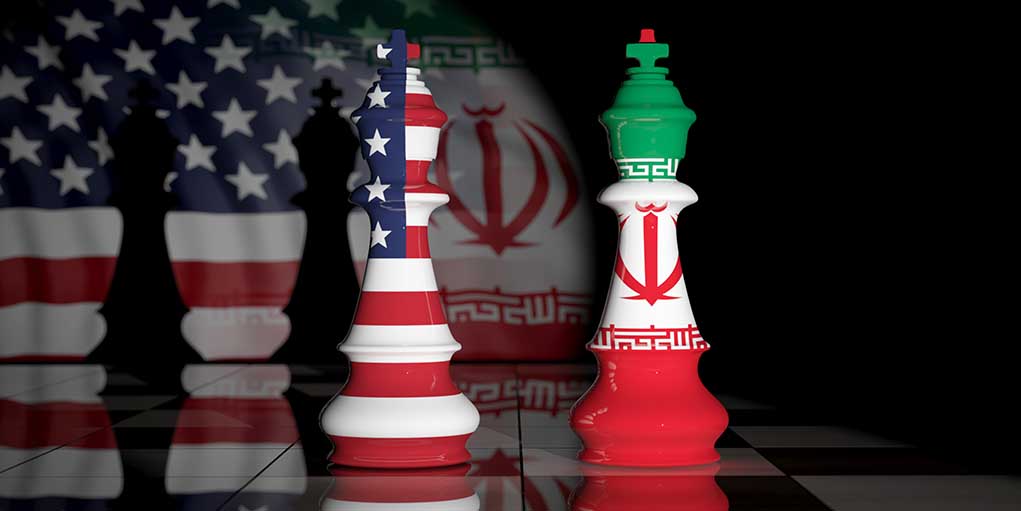
President Trump unveils harsh new sanctions targeting Iran’s shadow oil network while simultaneously pursuing a nuclear deal that could reshape Middle East relations.
Key Takeaways
- The Trump administration has imposed sanctions on nearly two dozen firms involved in Iran’s covert oil export scheme via front companies and a “shadow fleet.”
- Iran has signaled willingness to make nuclear concessions, including commitments to never make nuclear weapons and allow international inspectors.
- President Trump is demanding Iran permanently end uranium enrichment, cease sponsoring terrorism, and halt proxy wars as conditions for a deal.
- Negotiations remain contentious as Iran continues enriching uranium to 60% (near weapons-grade) while seeking sanctions relief.
- Trump has enlisted Qatar’s help in mediating the negotiations, with energy officials expecting a potential deal by year’s end.
Trump Tightens Economic Vise While Pursuing Diplomacy
The Trump administration has announced a significant expansion of sanctions targeting Iran’s clandestine oil export operations, hitting nearly two dozen entities involved in what Treasury officials describe as a sophisticated network of front companies and a “shadow fleet” of tankers. The sanctions specifically target Sepehr Energy and its extensive web of international corporations engaged in oil smuggling and money laundering operations that have allowed Iran to circumvent existing sanctions, with much of the illegal oil reportedly being sold to China.
“Today’s action underscores our continued focus on intensifying pressure on every aspect of Iran’s oil trade, which the regime uses to fund its dangerous and destabilizing activities,” said Secretary of the Treasury Scott Bessent.
Iran Signals Concessions While Maintaining Hardline on Enrichment
In a significant development, Ali Shamkhani, an adviser to Iran’s Supreme Leader, has indicated Iran’s potential willingness to make concessions regarding its nuclear program. When asked if Iran would commit to never making nuclear weapons and only enriching uranium for civilian use, Shamkhani responded with a simple “Yes.” He further expressed openness to allowing international inspectors to supervise Iran’s nuclear activities, stating: “It’s still possible. If the Americans act as they say, for sure we can have better relations.” However, Iranian officials continue to insist that uranium enrichment remains non-negotiable.
“An enrichment program can never exist in the state of Iran ever again. That’s our red line,” said Special Envoy to the Middle East Steve Witkoff.
The conflicting positions highlight the central tension in the negotiations. Iran currently enriches uranium up to 60%, dangerously close to weapons-grade levels of 90%, despite past agreements to limit enrichment. The Trump administration is demanding verifiable proof that Iran has halted uranium enrichment before lifting sanctions, while Iranian officials have signaled they may only accept temporary limits similar to those in the 2015 nuclear deal that Trump scrapped during his first term.
Trump Seeks Regional Support for Comprehensive Deal
During his recent Middle East tour, President Trump has actively sought regional support for his diplomatic initiative with Iran. In meetings with Qatari officials, Trump explicitly requested assistance in influencing Iran toward accepting a comprehensive agreement. “I hope you can help me with the Iran situation. It’s a perilous situation, and we want to do the right thing,” Trump told Qatari leaders, acknowledging Qatar’s unique diplomatic relationship with Tehran.
Trump has made his expectations for Iran crystal clear: “Iran must stop sponsoring terror, halt its bloody proxy wars and permanently and verifiably cease pursuit of nuclear weapons.” He also delivered a stark warning to Iranian leadership, urging them “to make the right decision” regarding their nuclear program, ominously adding “because something’s going to happen one way or the other.” These remarks came amid significant setbacks for Iran’s regional proxy network following Hamas’s attack on Israel and subsequent conflict.
A New Strategic Approach to an Old Problem
The Trump administration’s dual-track approach—applying maximum economic pressure while pursuing diplomatic engagement—represents a calculated strategy to force Iran into accepting more permanent restrictions on its nuclear ambitions. State Department spokeswoman Tammy Bruce emphasized this commitment: “As long as Iran devotes its illicit revenues to funding attacks on the United States and our allies, supporting terrorism around the world, and pursuing other destabilizing actions, we will continue to use all the tools at our disposal to hold the regime accountable.”
Despite the hardline rhetoric, Secretary of Energy Chris Wright has expressed optimism about reaching a deal with Iran by the end of the year, describing it as potentially a win-win situation. The indirect talks between the U.S. and Iran, mediated primarily by Oman, have progressed through four rounds since April, focusing predominantly on Iran’s uranium enrichment activities. With Trump’s decisive diplomatic push in the Middle East, including discussions with Syrian interim President Ahmad al-Sharaa about potentially joining the Abraham Accords, a comprehensive regional peace framework appears to be taking shape with Iran’s nuclear containment as a centerpiece.

